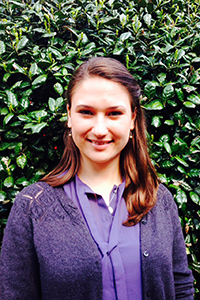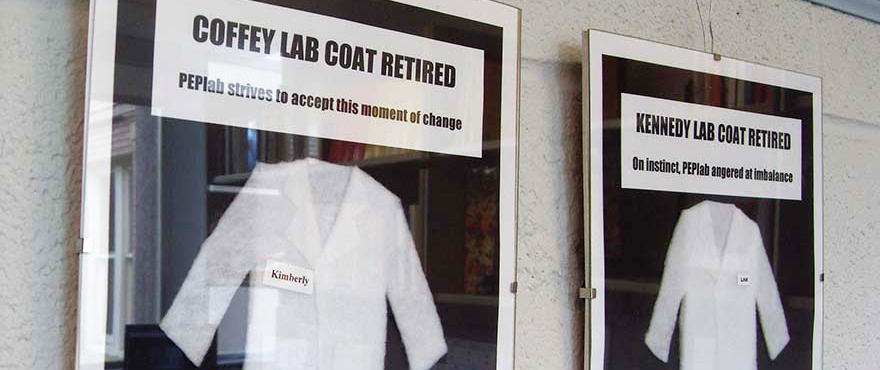
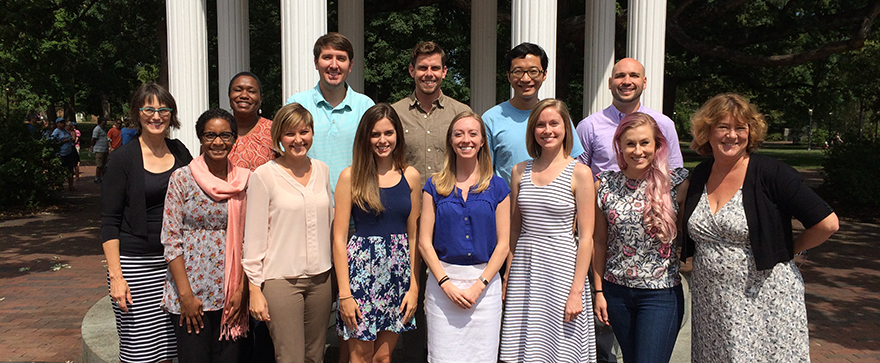
Alumni
Graduate Students
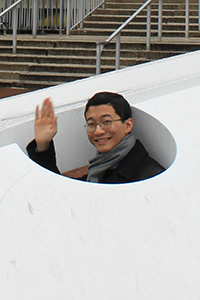 Khoa Le Nguyen (2021)
Khoa Le Nguyen (2021)
khoaln@live.unc.edu
How do positive emotions influence social cognition and prosocial behaviors?
What behaviors cultivate positive emotions and increase well-being in Facebook users?
 Kelly Tan (2021)
Kelly Tan (2021)
krtan@email.unc.edu
How do positive emotions operate while caregiving for an individual with an advanced cancer?
What role do positive emotions play during stress response while caring for an individual with advanced cancer?
 David Findley (2019)
David Findley (2019)
findleyd@live.unc.edu
If and how do brief LovingKindness practices shift affect as well as cognitive and behavioral outcomes?
How do positive experiences and emotions interaction with nutrition and exercise to improve mental and physical health?
 Zan Isgett (2017)
Zan Isgett (2017)
sisgett@live.unc.edu
Can different genotypes (related to oxytocin) lead to fundamental differences in individuals’ capacity for social connection?
How do positive interventions influence emotions and perceived social connection, especially depending on genotype?
 Brett Major (2017)
Brett Major (2017)
bmajor@live.unc.edu
How and to what extent do positive emotions help facilitate cognitive emotion regulation?
Does physical co-presence play an important role in the relationship between social closeness and improved mental and physical health?
 Carrie Adair (2016)
Carrie Adair (2016)
How does mindfulness (i.e., non-judgmental present moment attention and awareness) influence experiences of positive and negative affect at both explicit and implicit levels of awareness?
How do mindfulness and positive emotions influence feelings of social connection?
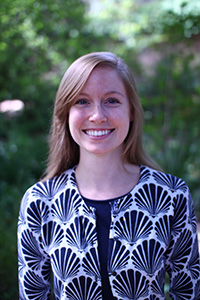 Elise Rice (2016)
Elise Rice (2016)
What are the functions of positive spontaneous thoughts in everyday life, especially in the contexts of motivation and self-regulation?
How do positive spontaneous thoughts contribute to well-being and mental health?
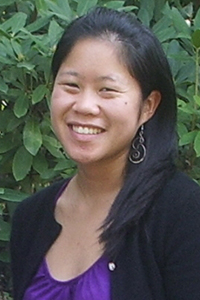 Tanya Vacharkulksemsuk (2013)
Tanya Vacharkulksemsuk (2013)
Tanya Vacharkulksemsuk’s research lies at the intersection of social psychology and organizations, investigating topics of interpersonal relationship formation, teamwork, synchrony and other nonverbal behaviors. Here primary questions of interest include: What makes people “gel”?, What are the contributing factors to a positive social connection? And How does fluid team coordination arise?
 Lahnna Catalino (2013)
Lahnna Catalino (2013)
Some people make time to engage in enjoyable activities in day-to-day life, whereas others do not. Lahnna Catalino calls this individual difference prioritizing positivity. She examines the emotional and mental health consequences of prioritizing positivity, as well as how prioritizing positivity may affect one’s social network. In addition, she examines how the intensity of people’s positive emotional reactions to pleasant events may, over time, affect well-being.
Postdoctoral Fellows
Research Faculty
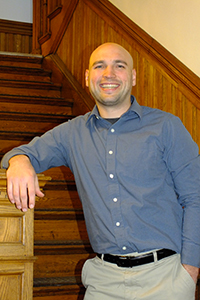 Aaron Boulton
Aaron Boulton
Which quantitative methods are optimal for understanding short- and long-term changes (and variability) in positive emotions?
How, and under what circumstances, can continuous-time models be applied to understand social and behavioral dynamics?
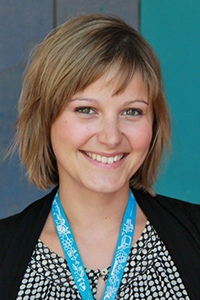 Patty Van Cappellen
Patty Van Cappellen
Which (and how) positive emotions open us to spirituality and to see a larger meaning to life?
When (and how) does religion bring out the best or the worst in people?
Research Staff
 Ann Firestine
Ann Firestine
Managed the multiple research studies, grant budgets, personnel, and the day-to-day logistics of running the PEP Lab
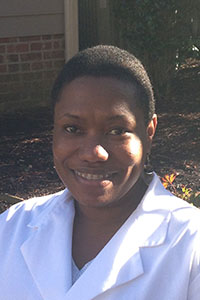 Shelia Laws
Shelia Laws
Lab Technician and Phlebotomist
Honors Students
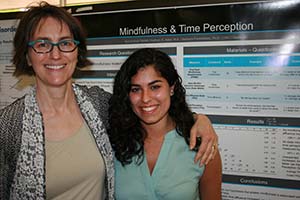 Aya Avishai-Yitshak (2014)
Aya Avishai-Yitshak (2014)
Thesis: Mindfulness and Time Perception
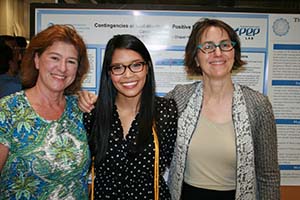 Lina Caldera (2014)
Lina Caldera (2014)
Thesis: Contingencies of Self-Worth and Positive Emotions in College Students
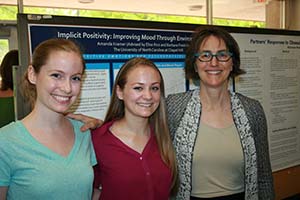 Amanda Kramer (2014)
Amanda Kramer (2014)
Thesis: Implicit Positivity: Improving Mood with Environmental Cues
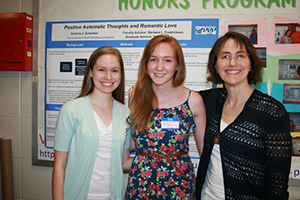 Tori Schenker (2013)
Tori Schenker (2013)
Thesis: Positive Automatic Thoughts and Romantic Love
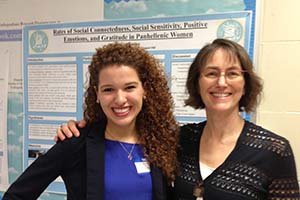 Kandace Thomas (2013)
Kandace Thomas (2013)
Thesis: Rates of Social Sensitivity, Social Connectedness, Positive Emotions, and Gratitude in Panhellenic Women
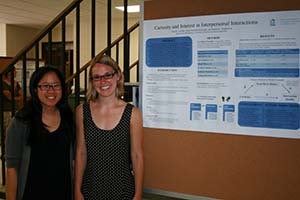 Jana Lembke (2012)
Jana Lembke (2012)
Thesis: Curiosity and Interest in Interpersonal Interactions
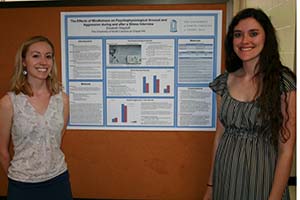 Liz Wagstaff (2012)
Liz Wagstaff (2012)
Thesis: The Effects of Mindfulness on Psychophysiological Arousal and Aggression During and After a Stress Interview









